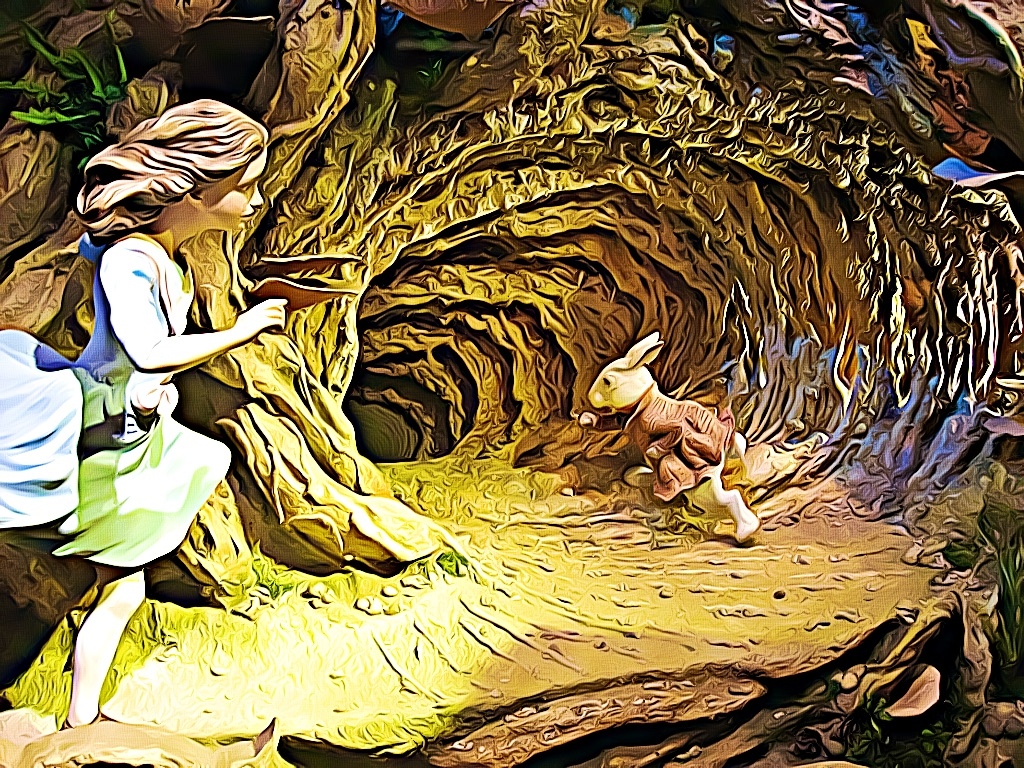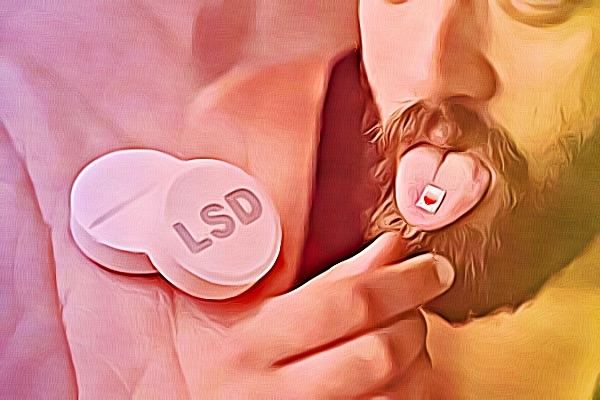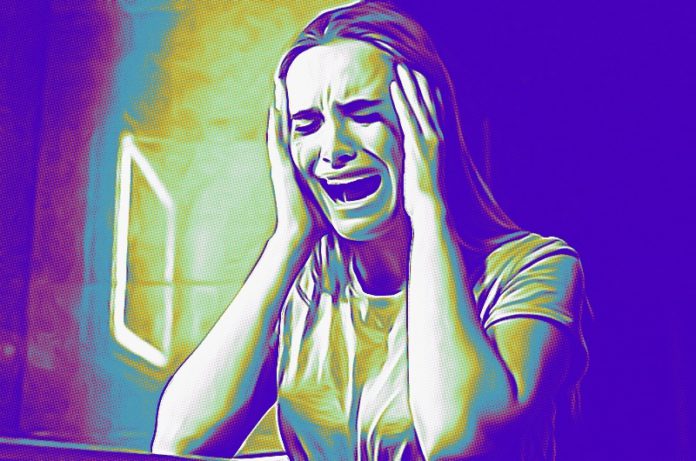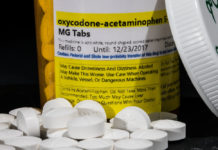Psychosis is a state of not knowing what is and is not reality. Someone who is experiencing psychosis may see or hear things that aren’t there, or they may believe things that are strange or bizarre. They can sometimes act out in scary or alarming ways. Psychosis is a symptom that is characteristic of mental illnesses like schizophrenia, schizoaffective disorder, or severe bipolar disorder, but can also occur as the result of drug use. People who are already genetically predisposed to mental illness may be more likely to experience drug-induced psychosis. While there is no evidence that drugs will cause conditions like schizophrenia, if there is already a genetic factor at work, it may lead to earlier onset. Though drug-induced psychosis often looks symptomatically similar to schizophrenia, it is different because it’s always caused by drug use. On the other hand, schizophrenia is caused by an imbalance in the brain. While drug use can sometimes cause latent schizophrenia to appear, the drug use is not what caused it.
Drug-induced psychosis can sometimes happen suddenly, or it can develop over a period of time.
When a person takes too much of a certain drug, it can be hard for their body to process the toxins fast enough, resulting in paranoia, psychotic episodes, and drug-induced psychosis. Sometimes, the medications that someone may be taking to treat mental illnesses or other conditions may interact with substances and can trigger a serious mental reaction. In rare cases, prescription medications, even when used properly can also trigger a psychotic episode. It’s important to identify the causes and be able to recognize the symptoms in order to treat this dangerous and frightening condition as quickly as possible.

While drug-induced psychosis often happens in those who are predisposed to mental illness, sometimes, it can occur in someone who would otherwise never experience these issues. The fact is, it isn’t possible to identify who will suffer from drug-induced psychosis before it happens. It may be tempting to ignore this issue if psychosis only lasts a short time or only occurs once, but it can be a symptom of an underlying issue and should always be addressed by a mental health professional. If you’ve experienced drug-induced psychosis, seek help immediately.
What Drugs Can Cause Psychosis?
Many drugs, especially stimulants, can cause psychosis if taken in large amounts in a short period of time. Some of the most common psychosis-inducing drugs include:
- Cocaine – when taken quickly and in large amounts, cocaine is well-known for causing psychosis symptoms. The most common type of delusions that cocaine and amphetamine users experience include thoughts that someone is following them or trying to harm or kill them. A large dose of cocaine can cause psychosis within a matter of minutes because its effects are felt so strongly and quickly.
- Methamphetamine – meth is a stimulant that can cause severe agitation, violent behavior, and delusions. Meth has a high potential to be abused and many abusers experience some level of psychosis. Meth users often pick their skin because of psychosis symptoms like agitation, anxiety, or feelings of crawling skin, leading to scabs, scars, and infections.
- Alcohol – chronic and severe alcohol abuse can cause psychosis over time, but usually only when large amounts of alcohol have been consumed within a period of days or weeks. Serious alcohol abuse can damage the brain, leading to paranoid delusions, and alcohol withdrawal can cause conditions that have psychotic symptoms.
- Hallucinogens – at their core, hallucinogens like mushrooms, LSD, and DMT are expected to produce audio and visual disturbances, but sometimes these can be scary, intense, or last longer than expected, even when the drug has left the body. Hallucinogens can trigger underlying mental illnesses and induce longer-lasting psychosis. In most cases, people who take hallucinogenic drugs are aware that the things they are seeing and hearing aren’t there, but these effects can also trigger a break from reality, which is when it becomes most problematic. Psychosis is different from drug-induced hallucinations because those with psychosis believe that the hallucinations are real.
- Marijuana – although marijuana is widely used and often thought of as a safe and natural drug, many people who have used it can attest that it will often cause feelings of panic or anxiety. In larger doses, marijuana can exacerbate these symptoms further, leading to severe paranoia and delusions, especially in people who use it chronically.
- Ketamine – Ketamine is sometimes used in small doses as a party drug, and in bigger doses as a dissociative. It can sometimes mimic schizophrenic symptoms in larger doses.
This is not an exhaustive list of drugs that cause psychosis, simply the most common. It’s important to remember that even drugs prescribed by your doctor can sometimes trigger drug-induced psychosis. Below, we will take a look at some of the most common symptoms of psychosis so that you can recognize them if someone you love starts to exhibit symptoms.
What Are The Symptoms Of Drug-Induced Psychosis
Drug-induced psychosis can have alarming symptoms. If you or someone you know has some of these symptoms after ingesting a drug, seek medical attention immediately. Here are the most common ones to look out for:
- Hallucinations – someone who is in a state of drug-induced psychosis will see and hear things that aren’t there. They may hear voices, see people who aren’t present, or even experience sensations of things crawling on them, leading to them picking at their skin. If the person truly believes that the hallucinations they are seeing, hearing, or feeling are real, it is likely caused by drug-induced psychosis.
- Delusions – delusions are different from hallucinations in that they are usually related to the way a person is thinking. Delusions are harmful and untrue thoughts that drive people to act or behave dangerously or bizarrely. For example, someone suffering from a delusion may believe that someone has been stalking them. Even when they are shown facts that this is not true, it’s difficult for them to separate themselves from delusional beliefs.
- Strange speech or behavior patterns – someone experiencing psychosis may have a marked shift in personality and behavior. They may suddenly begin speaking in a forced or stilted manner or may start talking about things that aren’t there. They may act strange or violent, lashing out or ignoring the people who are with them.

How Long Can Drug-Induced Psychosis Last? Is It Dangerous?
In some cases, drug-induced psychosis goes away as soon as the drug leaves the body. This can be a matter of hours or days. Sometimes, however, psychosis can last for weeks or months, or reoccur in episodes. Drug-induced psychosis only happens after the consumption of a drug, but that initial bout of psychosis can cause further problems or lead to long-lasting issues. It can uncover an underlying mental health condition and trigger further episodes. The exact timeline for drug-induced psychosis is hard to predict and depends on the dosage taken, the combination of drugs used, how long the person has been using the drug, and if they have any other underlying health issues. If someone has been using a drug for many months or years and they suddenly decide to stop, this can also induce psychosis, especially in the case of alcohol use. This can be a symptom of withdrawal.
Drug-induced psychosis can be dangerous because people experiencing delusions may hurt themselves either intentionally or unintentionally. Sometimes, these delusions can include suicidal ideation, or they may be led to believe that a loved one is out to get them. This can cause them to last out violently. It’s important to remember that not all drug-induced psychosis will result in violence but it’s a very real danger and should be treated as such.
Can Drug-Induced Psychosis Be Treated?
As soon as the symptoms of drug-induced psychosis present themselves, it’s important for those experiencing it to get an accurate diagnosis. This can rule out any other mental illnesses or can help diagnose them. In addition, getting a diagnosis will let doctors know if any prescribed medications are causing the psychosis. Because of the many factors at play, it can sometimes be complicated or difficult to diagnose drug-induced psychosis which is why it’s so important to see a mental health professional as soon as possible.
The first step towards treating drug-induced psychosis is to slowly and safely detox from the drug in question. This should always be done under the supervision of a medical professional to make sure the drug user doesn’t experience any additional problems. This may be done in an inpatient setting. In addition, antipsychotic medications can help to reduce some of the more severe and frightening symptoms of psychosis. This can help a user achieve the mental stability they need to successfully complete a treatment program.
Depending on each individual case, a mental health professional can help develop a treatment plan that will effectively treat psychosis and the underlying substance abuse problems or mental health conditions. Though it’s a challenging and scary issue, drug-induced psychosis is treatable and recovery is possible.
















